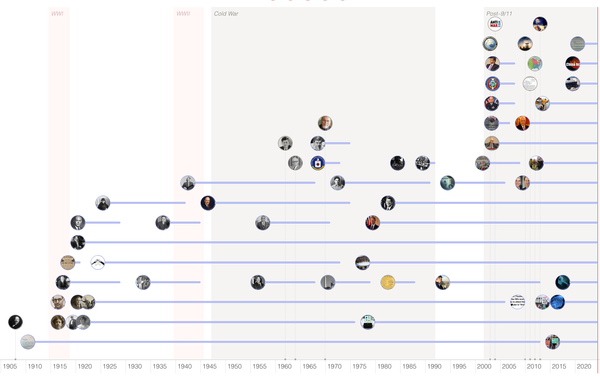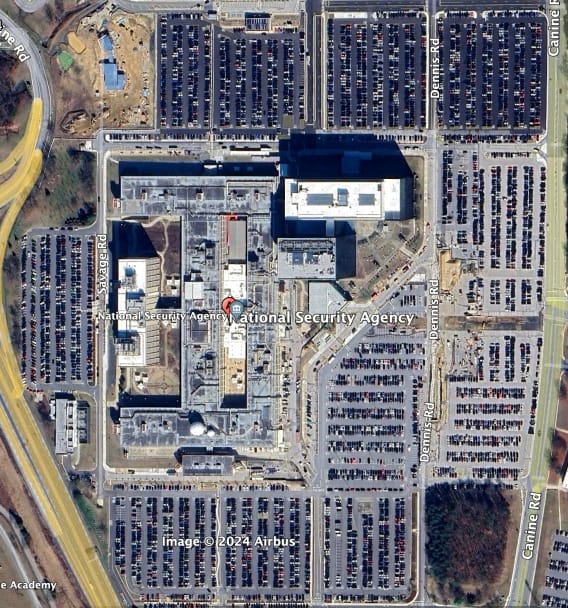A Rare Civil Liberties Win (For Now) and Dogs That Need Your Help
For the first time in the post-9/11 era, the House delivered a clear cut win against the use of indefinite detention by U.S. military forces in the "War on Terror." In other news, dogs suffering via a horrific Pentagon medical experimentation program need your help.

For the first time in the post-9/11 era, the House delivered a clear cut win against the use of indefinite detention by U.S. military forces in the "War on Terror." In other news, dogs suffering via a horrific Pentagon medical experimentation program need your help.
You may recall that last week, I offered a preview of the coming debate over the Fiscal Year 2025 National Defense Authorization Act (NDAA) that focused on one particular issue long in need of correction: the ability of U.S. military forces to indefinitely detain anyone remotely suspected or accused of "supporting" or "aiding" alleged or known terrorist organizations. As I noted then:
For most of the last decade, the concern in the privacy and civil liberties community has centered on the phrase "or associated forces"--an undefined term whose ambiguity has already been expansively applied against al-Shabab and ISIS, which did not even exist on 9/11. Thus, those precedents could pave the way for American student groups engaged in pro-Palestinian demonstrations to be labeled "associated forces" acting on behalf of Hamas.
I'm extremely pleased to report that on June 13, the House approved on a voice vote the amendment offered by Rep. Matt Rosendale (R-MT) that explicitly bans American military forces from indefinitely detaining U.S. citizens in connection with allegations of "supporting" or "aiding" terrorist organizations. Rosendale took a political victory lap after the vote via a press release. However, he ended up voting against the NDAA itself as a result of the defeat of his anti-IVF amendment.
If you're like me, you're probably baffled at a how a man who claims to be so concerned about individual rights could vote to protect people from unconstitutional, endless detention on the one hand while flagrantly trying to use coercive government power to curtail women's reproductive freedom on the other hand.
Whether the House and Senate NDAA conferees will retaliate against Rosendale by stripping out the indefinite detention ban amendment remains to be seen, but given that the House as a whole voted unanimously in favor of it I'm hopeful it will be in the final conference version of the NDAA that will be voted on later this year. I'll keep you updated as events warrant.
As you know, normally the pieces you read in the Sentinel are designed to expose the dangers of and offer solutions to potential or actual political or institutional threats to the survival of the Republic. Once in a while, however, I come across something so morally outrageous that I feel compelled to bring it to the attention of others.
There is a "national security" link to what I'm about to discuss, but it's a bogus link--an institutional fraud that is causing needless pain and suffering for "man's best friend." If you're an animal lover, and especially a dog lover, what you're about to read to enrage you and, I hope, motivate you to join me in taking action to stop it.
In the June 14, 2024, edition of The Hill, Dr. Lawrence Hansen, MD, of the University of California-San Diego School of Medicine wrote something of a confessional about his past experiments on dogs while in medical school:
Of all the animals used in research, the subjection of dogs to invasive experiments is especially condemnable, because humans have selectively bred dogs to unconditionally love the very people who sometimes abuse them. For instance, one government website states, “Most of the dogs used in research are beagles due to their convenient size and docile nature.”
After three decades, I’m still ashamed to say I was once convinced to participate in this betrayal. In medical school, I was instructed to cut apart and kill dogs — a Golden Retriever and a black Lab — for physiology demonstrations and surgical practice. I did it, qualms of conscience notwithstanding, because I was told it was necessary.
It turns out that this wasn’t true. It has never been the case that doctors could better serve our patients if we killed more dogs. In fact, we never needed to kill any. It was just a bad habit of old-school professors that had become institutionalized.
As Hansen notes, most of this kind of systematized, unjustified animal torture is no longer allowed at medical schools and in most agencies of the federal government. But as Hansen reveals, at the Pentagon it's still going on in the form of drug testing on dogs.
Existing studies and reports that Hansen cites in his piece clearly show this is kind of testing is useless in terms of predicting how drugs meant for humans but used on dogs will actually predict safety and efficacy in humans. In short, it's just another form of taxpayer funded dog torture.
But you can help end it.
While it's true the NDAA has now passed the House without a provision ending this sick practice, the bill still needs to clear the Senate and the final version be agreed to by House and Senate conferees before going back to each chamber for a final vote. That means there's still time for you to contact your own Senators and demand that any final version of the FY 2025 NDAA must ban the Pentagon's use of dogs for any kind of drug or other invasive, painful testing:
1. Go to the Senate website to get the contact info for your Senators or use Resistbot for the same purpose.
2. Point them to Hansen's piece and demand the FY 2025 NDAA contain an outright ban on such testing.
3. Ask them to ensure that any appropriations bills passed by Congress the balance of this year also contain an outright ban on such testing.
Thanks for reading the Sentinel. If you're not currently a subscriber, please consider becoming one as doing so is free through 2024 and it's an easy way to show your support for my work. Also, please share this piece with family, friends, and anyone else you believe would benefit from reading it.




